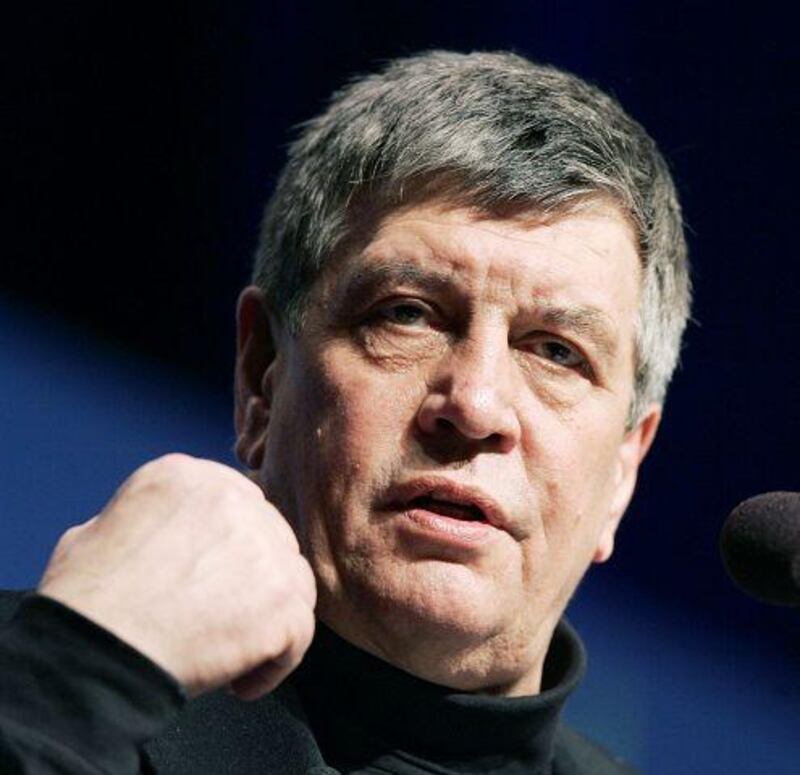ABU DHABI // The candidacy of an oil-producing country to host the headquarters of the world's recently formed renewable energy agency has "special meaning", according to Dr Hermann Scheer, a key figure behind the establishment of the International Renewable Energy Agency (Irena).
"It is a serious ambition to look beyond the present energy age," he said. "It has a special meaning if the bid comes from an oil-producing country. It is a good sign that an oil-producing country gives the signal that the way we should go is for renewable energy." But Dr Scheer, who is chairman of the World Council for Renewable Energy, was careful to emphasise that his comments must not be interpreted as an offer of support for any of the contending parties.
"As the initiator of Irena, I cannot say it should be there or there," he said. "My main purpose is that it becomes established and works strongly. The main point globally is co-operation for renewables, not competition." The UAE's per capita carbon dioxide tally is among the highest in the world, and the country is a relative newcomer to the green-energy scene. But, said Dr Scheer, this is the case with most other countries in the world.
"More than 90 per cent of all countries are more or less newcomers." Abu Dhabi had taken decisive steps to assert itself as a future renewable energy centre, he said. He also highlighted Masdar City, the world's first large-scale carbon neutral development, as another example of how the UAE is trying to establish itself as an influential renewable energy player. Through Masdar, the Government's sustainability initiative, it has invested extensively in renewable energy technology and projects at home and abroad. Earlier this year, Abu Dhabi opened the country's first solar energy power plant and set a green energy target for 2020, when seven per cent of the emirate's energy production will derive from sustainable sources. Dr Scheer said Abu Dhabi's bid for Irena could be interpreted as a recognition that renewables are the energy source of the future.
On Tuesday the Danish Centre for Renewable Energy distributed an open letter to delegates of Irena's signatory countries to recommend that Dr Scheer be appointed founding chair to directly support the director general during the organisation's formation period. "It must be acknowledged that the breakthrough represented by the establishment of Irena can be in great part credited to the work of Dr Hermann Scheer," the letter said. "The German government refrained from nominating Dr Scheer for the post of Irena's director general because it decided to concentrate all of its efforts to ensure that Bonn becomes the headquarters of Irena."
Besides its significant investments in solar and wind energy projects, the UAE is also developing the backbone of a future nuclear energy infrastructure. Nuclear energy has enjoyed a revival in recent years with a host of influential policy makers promoting it as a transition technology in the move from fossil fuels to renewables. "The way is for renewables and we do not need a bridge," Dr Scheer said. "Nothing can be implemented faster than renewable energy. Most nuclear ideas in many countries will not be implemented."
If all real costs are recognised, such as infrastructure, waste management and safety requirements, nuclear energy becomes less attractive, he added. "Renewable energy will eventually become the cheapest form of energy. All the costs are technology costs. Technology costs go down with mass introduction and running technological improvements. "Even in Germany, energy experts said more than five per cent is not possible. Now we are at 19 per cent. We arrived at 19 per cent in only nine years, and this is only the beginning."
vtodorova@thenational.ae





